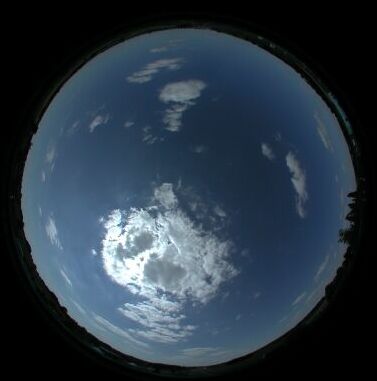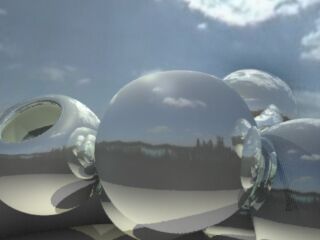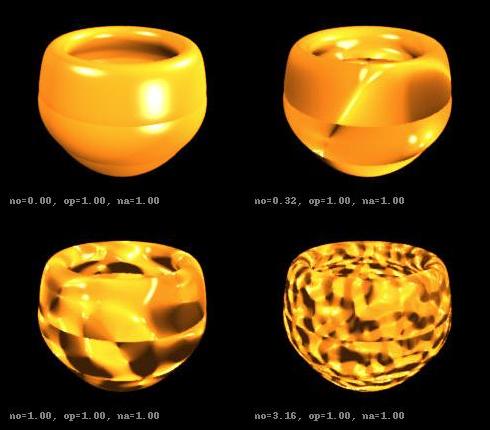old and miscellaneous software
This is a collection of assorted software which I had written way back in 2003. Please note that these are 5 years old, so they may have lost some topical value now.
maya manipulator plugin
David Gould’s Complete Maya Programming , provided some insights into how to make a manipluator plugin. Here is one of my attempts. Please find the code here, that should work for Maya8.5.
- After you compile the code, please load in the plugin kgManip.mll.
- Source the mel script kgGenerateSlabs.mel.
- Run 'kgGenerateSlabs()' in the script window. This should create a grid of slabs and kgLocators on top of the slabs.
- Select any kgLocator
- Modify/Transformation Tools/Show Maniplulator Tools. THis makes the corresponding manipulator visible. Trypulling the manipulator. This changes the slab height.
Environment mapping using renderman
I created the following maya scene , using NURBS modeling in Maya. For aligning them on the floor, I dropped 10 or so vases from different heights,
and let them bounce and settle on the ground, utilizing a gravity field.
I had used the u-v texture editor to texture map the sky-dome using the following spherical texture map  which I found in the web. I used the maya-rib exporter that came with my Maya Unlimited 4.5, and since it didnt export texture coordinates, I wrote a mel
script to export a selected geometry and texture coordinate as a rib file.
Next I had to generate the environment maps from the scene, so that they can be used in the environment map shaders for the balls. For this I created this mel script . With these useful mel scripts, I could create the rib files 1, and
2 . As I said before, I used the standard environment mapping shader which was already available. Here is the result.
which I found in the web. I used the maya-rib exporter that came with my Maya Unlimited 4.5, and since it didnt export texture coordinates, I wrote a mel
script to export a selected geometry and texture coordinate as a rib file.
Next I had to generate the environment maps from the scene, so that they can be used in the environment map shaders for the balls. For this I created this mel script . With these useful mel scripts, I could create the rib files 1, and
2 . As I said before, I used the standard environment mapping shader which was already available. Here is the result.
Two things that I have used for this project have since then been discontinued.
- BMRT renderer for renderman
- Rib exporter, bundled with Maya 4.5
Ambient Occlusion Shader for Renderman
Here is an ambient occlusion shader for renderman. I have used stratified sampling of the hemisphere surrounding a point to get the ambient occlusion value. Here  is the result of ambient occlusion. Here
is the result of ambient occlusion. Here  is the result of lighting the same scene with directional lighting. Here is the composited image.
is the result of lighting the same scene with directional lighting. Here is the composited image.
Shader evaluation using python script
This is a small set of python scripts that renders a rib file multiple times, eachtime with different shader parameters. The scripts are
First, edit the shaderParamDict in the script shaderStat.py to specify the maximum and minimum values, of the shader parameters to be tested, and a way to iterate them. These are parameters that you can specify in a declarative manner.
Then do
shaderStat.py <input rib file name> <shader name> <sub sequence of shader parameter names that need be verified> I have used the following python features in this script.
- currying
- OO design
- iterators, generators
- dynamic changing of the functions of a module
Here are some resulting images for a simple noise shader
on a simple vase scene.

blog comments powered by Disqus